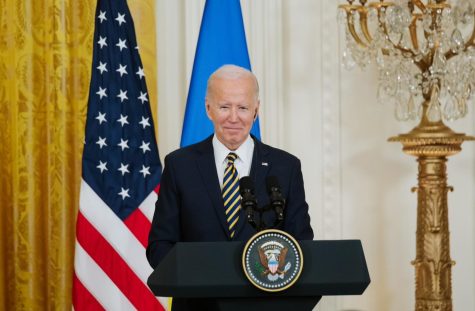20th National Chinese Communist Party
November 2, 2022
As the 20th National Congress of the Chinese Communist Party came to an end on Oct. 22, Xi Jinping officially started his third term—if not for life—as the leader of the country. This time, the six remaining members of the Standing Committee of the Political Bureau of the CPC Central Committee are all Xi’s subordinates—an unprecedented action in the history of the People’s Republic of China. Among the seven Standing Committee members, the most surprising promotion is Li Qiang, who demanded the lockdown in Shanghai this past March, resulting in huge losses for the economy. Another new member, Zhang Liang, was accused of rape by famous professional teen tennis player Peng Shuai on the biggest Chinese social media platform, Weibo, two years ago. It seems like the only consequence of this accusation so far is Shuai’s account being banned on Weibo. According to comments from Chinese Twitter users, “it’s surprising how those people made to the highest leadership group in China by act in favor of Xi Jinping, rather than act in favor of the people or the country.”
However, it is remarkable that in this somber time for China, a group of brave activists expressed its disapproval of Xi’s third term as the country’s leader. The first “gladiator” is Peng Zaizhou, an ordinary white-collar worker in Beijing. On Oct. 13, a few days before the grand opening of the 20th National Congress of the Chinese Communist Party, Peng Zaizhou hung a banner on a bridge in downtown Beijing, along with smoke and audio to attract more attention. Though he was arrested almost immediately and the banner was taken down, the content of the banner spread over uncensored social media platforms like Twitter.
“Life Not Zero-Covid Policy, Freedom Not Lockdown, Dignity Not lies, Reform Not regression, Elections not Dictatorship, Citizens not Slaves” became the slogan among all anti-Xi activists throughout the world.
Within one night, thousands of people joined the hashtag #NotMyPresident on Twitter to express their anger and despair toward Xi’s dictatorship. Among them, the most notable actions are made by Chinese students studying in universities outside of mainland China. They printed posters with the slogan and put them on post-boards on campuses to spread the information and seek more supporters. Some of the participants are from top universities across the world, such as Stanford University, University of Toronto, UNC Chapel Hill, University of Glasgow and more.
Chinese descendants and citizens residing outside mainland China were also first responders. On Oct. 18, a group of protestors gathered around the Chinese Consulate in Manchester to peacefully express their unwillingness for Xi’s dictatorship, but they were violently dragged into the Consulate and punched by the security guards. The British government was aware of the situation and sent out multiple warnings to the Chinese government.
The protests lead some people to regain hope in the potential chance for democracy in China. Since Xi came to power, government regulation and censorship over the Internet magnificently increased compared to when Hujingtao was the leader of the country. Those restrictions made most Chinese subjected to acquire only the information that the government allows.
“[The anti-Xi comments we see on other social media] is another indication that the great firewall is not working,” professor Lance Kenney from the Villanova Political Science Department said. “People are managing to let their voice be heard.”












